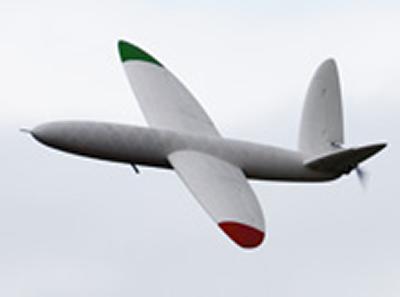Southampton to provide major boost to UK robotics and autonomous systems capability

The University of Southampton is to play a major role in helping to boost the UK’s ability to develop and exploit the vast potential of robotics and autonomous systems.
Notes for editors
Southampton is one of the founding partners of the EPSRC UK Robotics and Autonomous Systems Network (UK-RAS Network), which will bring together the country’s key academic capabilities in robotics innovation under national coordination for the first time. It will encourage academic and industry collaborations to accelerate the development and adoption of robotics and autonomous systems.
The Network was unveiled last night (24 June) at the Science Museum in London following a public lecture on Robot Ethics, organised by IET Robotics and Mechatronics Network in association with the Science Museum Lates and supported by the EPSRC UK-RAS Network.
As the UK’s leading university for unmanned autonomous systems (UAS) research and education, the University of Southampton will be active in the Network across many areas. In particular, aerial vehicles through the DECODE (Decision Environment for COmplex DEsign) project to design, build and fly state-of-the-art unmanned air vehicles with full autonomous control systems and robotics for Earth Science as part of the ASTRA initiative (@SotonASTRA), which develops cutting-edge low-cost robotic systems for observing the atmosphere.
Dr Stephen Prior, Reader in Unmanned Air Vehicles at the University of Southampton, says: “Our involvement in the EPSRC UK-RAS Network reflects our global reputation for robotics and autonomous systems research and development. We have the capabilities and resources to help the UK economy address the demands of this challenging technology across all sectors of industry, from transport and healthcare to manufacturing and unmanned systems.”
The EPSRC UK-RAS Network is funded by the Engineering and Physical Sciences Research Council (EPSRC) – the UK's main agency for funding research in engineering and the physical sciences. The Network’s mission is to provide academic leadership in Robotics and Autonomous Systems, expand collaboration with industry and integrate and coordinate activities at eight EPSRC-funded RAS dedicated facilities and Centres for Doctoral Training (CDTs) across the UK.
The new network has already received strong support by major industrial partners, the Science Museum and the UK’s major professional engineering bodies including Royal Academy of Engineering, IET, and the Institute of Mechanical Engineers. The Network will expand to include broader stakeholders including key national laboratories in the UK and leading international collaborators in both academia and industry. The global market for service and industrial robots is estimated to reach $59.5 billion by 2020.
Kedar Pandya, Head of the Engineering Theme for the Engineering and Physical Sciences Research Council, added: “Working with Innovate UK and other research council partners, EPSRC's mission is to support and invest in the world-leading research base that has earned the UK its deserved reputation for research excellence. Robotics and Autonomous Systems are one of the Eight Great Technologies in which the UK is set to be a global leader, and the technology being developed at these EPSRC-funded RAS facilities will deliver a significant impact on the research landscape, and attract the kind of industrial investment that will maximise the UK’s stake in the worldwide robotics market.”
The Network will organise a wide range of activities including network and strategic events such as the UK Robotics conference, symposia and focused workshops, public engagement and exhibitions. It will also have extensive online engagement activities using social media and web and user forums. The Network aims to strengthen the relationship with industry by supporting interdisciplinary mobility and industrial secondment and developing proof-of-concept (PoC) projects and running design challenges. There is also a strong emphasis on government policy and high-level engagement with international stakeholders.